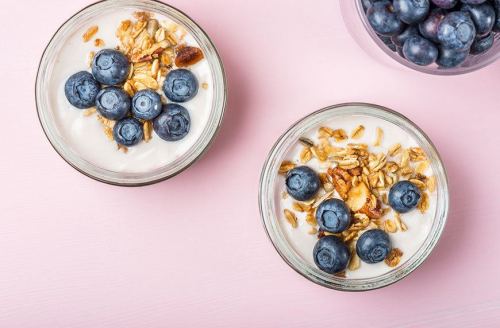Drinking fluids in the morning is a healthy habit routinely recommended by leading health experts. After all, we lose approximately one liter of water overnight from the humidity of our breath alone, so staying adequately hydrated with water upon waking (and all day) is essential to feel and perform our best. Coffee, while a diuretic, is one other popular morning beverage option that’s packed with antioxidants and gut health benefits, and having a cup in the morning can—for some of us—be the deciding factor between having a productive day and one that’s wildly sleepy.
Experts in This Article
dentist and the founder and CEO of Les Belles NYC
But with that said, is it safe on your pearly whites to brush right after downing a cup of coffee? And when it comes to drinking water right before brushing, should we ever worry be about swallowing bacteria that’s accumulated overnight along with it?
For definitive answers, we reached out to Sharon Huang, DDS, a dentist and the founder and CEO of dentistry practice Les Belles NYC.
Is it safe to drink water in the morning before brushing up?
Fortunately, Dr. Huang gives the green light on this front—so those of us who rise and shine by enjoying a glass of water before brushing can all breathe a collective sigh of relief. “When we swallow water, it gets mixed with the enzymes in our saliva and goes down to the stomach, which is highly acidic,” she says. “The acid in the stomach will kill the bacteria in the water.” In other words, stomach acid comes to the rescue before any bacterial buildup that’s accumulated in your mouth overnight has the chance to cause a commotion throughout your body.
With that in mind, Dr. Huang does note that the taste of your morning breath might not be so palatable. “While it is safe to drink water before brushing your teeth because stomach acid will kill the bacteria, it may not always taste pleasant,” she says. If this applies to you (no shame!), she mentions it’ll be more refreshing if you’re able to rinse and spit before you swallow water—though again, this will be more a matter of taste and personable preference versus safety. “The taste of the water may be laced with your morning breath, but it poses no threats,” Dr. Huang reiterates.
Is it preferable to drink coffee before or after brushing your teeth?
While you’re in the clear whether you choose to drink water before or after brushing, you might be wondering if the same flexibility applies when it comes to coffee. On this point, Dr. Huang says that java drinkers should be more cautious. In fact, she says that brushing your teeth right after getting your caffeine fix is strongly discouraged.
“Foods and drinks that are high in acid—coffee is one of them—demineralize the teeth, or soften the enamel of your teeth,” Dr. Huang explains. “Doing anything with your teeth immediately following [such as ] brushing or flossing while the enamel is soft can damage teeth, causing sensitivity or develop weak spots that can lead to cavities.
Keep in mind that this only applies to brushing your teeth immediately after finishing your coffee. You can still brush your teeth. Dr. Huang advises waiting at least 30 minutes to an hour. “Once you’ve had your cup of coffee, rinse your mouth with water, and wait at least 30 minutes after you’re finished drinking coffee to brush again. After the 30-minute mark, your enamel has re-hardened and won’t be removed by brushing,” she says.
Dr. Huang also adds that brushing ahead of coffee time is ideal because plaque and bacteria gather on the teeth overnight. “If plaque is on your teeth when you drink your coffee, meaning you haven’t brushed yet, coffee can stain the plaque, making the teeth appear darker.” Read: Less plaque buildup means less of a chance of discoloration—so to keep your pearly whites as glistening as possible, aim to brush *before* you brew a fresh cup.
Is there an ideal time to wait before drinking water or coffee *after* brushing?
To round out our pressing questions about dental health and morning bevs, we were curious to see if we should wait any specific amount of time after brushing yet before hydrating or caffeinating. “After brushing, it is safe to drink water and coffee immediately since the minerals in toothpaste have strengthened, remineralized, and rid the teeth surfaces of bacteria build up,” Dr. Huang shares. “However, for the best taste, you may want to wait 10 minutes to avoid toothpaste-flavored coffee or water.”
How to keep your teeth looking good if you’re a coffee drinker
1. Maintain an oral health routine
According to Dr. Huang, the best oral care routine for everyone, but especially coffee drinkers, consists of four key steps to be done daily and in the following order. First, start with flossing, then brush your teeth (do this step morning and night, ideally with an electric toothbrush). Next, Dr. Huang recommends using a tongue scraper to remove bacteria from the tongue. And lastly, finish with an alcohol-free mouth rinse.
“The most important items are daily flossing and twice-daily brushing,” Dr. Huang says. “They are essential to removing plaque and debris from your coffee or any drink or food, as well as the natural buildup of bacteria that occurs in all mouths.” Adding a mouthwash to your oral-care routine is also a great idea. “A mouthwash can help further remove bacteria, plaque, and debris, plus keep your breath fresh.”
Implementing this four-step oral-hygiene routine religiously not only keeps the bacteria buildup in the mouth low, it also means there are fewer places where coffee stains can attach themselves. “Superficial stains adhere to bacteria on the surface before making their way into the deeper layers of teeth to become deep stains,” Dr. Huang says.
2. Get teeth cleanings twice a year
For stain prevention and general oral health, getting professional teeth cleanings twice a year is also key. “Your dentist has powerful tools to remove surface stains before they start to migrate into the deeper layers of teeth,” Dr. Huang says.
3. Use whitening toothpaste
Whitening toothpaste is another way to help fight stains and is a strategy Dr. Huang recommends if your teeth can tolerate it without increased sensitivity. “I always recommend alternating a whitening toothpaste with a toothpaste formulated for sensitive teeth to decrease sensitivity,” she says. Check out Dr. Huang’s top recommended whitening products here.
Sign Up for Our Daily Newsletter
Get all the latest in wellness, trends, food, fitness, beauty, and more delivered right to your inbox.
Got it, you've been added to our email list.











